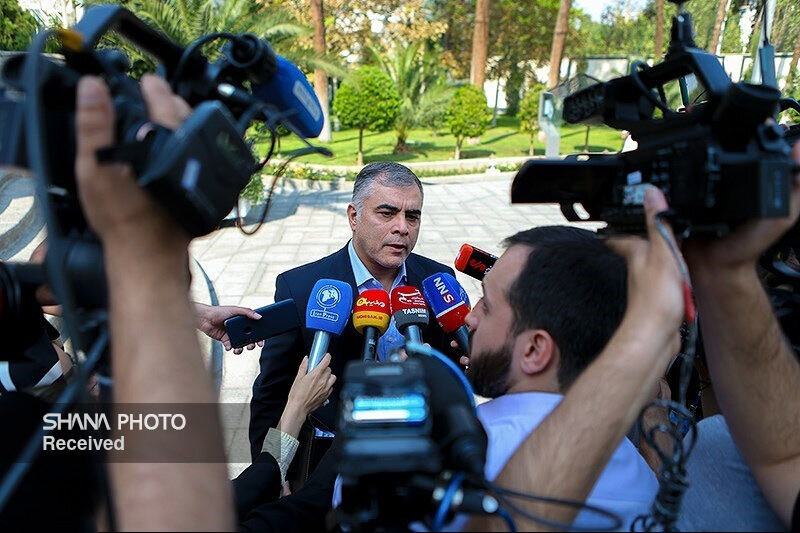Speaking on Wednesday on the sidelines of a cabinet meeting, Mohsen Paknejad noted that significant contracts to boost gas production would soon be finalized. "It will naturally take time for these contracts to yield results," he added.
Paknejad also reported a 35 to 40 million cubic meter reduction in household gas consumption in recent days, attributing the decrease to public cooperation.
"Thankfully, the public's cooperation has been excellent, leading to reduced consumption in residential and commercial sectors. While we anticipated household consumption to reach up to 670 million cubic meters per day, public efforts have helped cut daily consumption by 35 to 40 million cubic meters," he explained.
The minister emphasized that measures are being planned for next year to manage winter challenges more effectively.
"This year, some initiatives were delayed for various reasons. Next year, if I remain in office, I assure you that the oil industry will work diligently to prevent further shortcomings. I also commend the president's rare act of apologizing to the public and, as Oil Minister, I apologize to the people for any shortcomings from any party," he said.
Colder weather this year
When asked whether further closures would be implemented to conserve fuel, the minister clarified that the recent closures were due to air pollution, not fuel issues.
However, he noted that temperatures this year are notably colder, by 3 to 4 degrees, compared to the same period last year.
Paknejad explained that a decrease in temperature results in significant gas savings. "For each degree of temperature reduction, gas consumption equivalent to the production of one South Pars phase is saved. A 2-degree drop can lead to daily savings of approximately 50 million cubic meters," he stated.
Diesel production rise by 10m liters
Regarding the rise in petroleum product production, Paknejad announced a daily increase of over 10 million liters of diesel over the past two months. This was achieved through process adjustments at oil refineries and increased feedstock. "We’ve seen similar progress with gasoline production," he said.
He added that power plants have diversified their fuel mix, which helped mitigate gas supply concerns during peak demand.
Energy diplomacy with neighbors underway
Paknejad highlighted successful energy diplomacy initiatives with neighboring countries, including potential agreements on gas swaps or imports.
"We’re currently negotiating with Turkmenistan to swap gas with two neighboring countries. This will help prevent potential pressure drops in the northeastern section of our national gas grid," he said.
Commenting on the Gas Exporting Countries Forum (GECF), Paknejad noted that discussions during the meeting focused on gas trade and policy-making.
"These talks help Iran, as the holder of the world’s second-largest gas reserves, achieve its objectives in gas trade," he concluded.


Your Comment